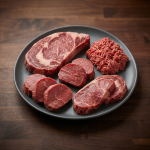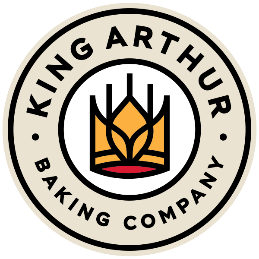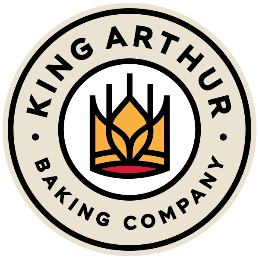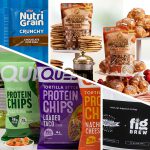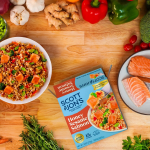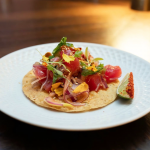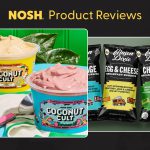Upton’s Naturals Offers Opportunity To Emerging Vegan Brands
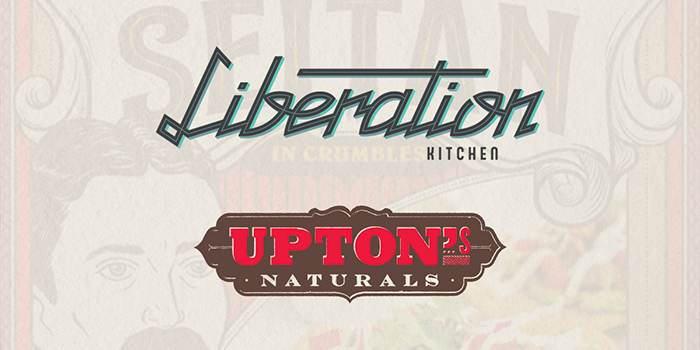
When the pandemic essentially shut down Upton’s Naturals Breakroom restaurant concept in Chicago, the company pivoted and started selling vegan pastries to-go out of the space. Now, the company is taking that success and its nearly two decades of experience in vegan foods to rebrand its cafe into a “launchpad” for emerging brands called Liberation Kitchen.
The new business opened at the end of August and is offering its production space, a marketing platform market and mentorship to CPG, plant-based startup brands.
“It gives us the opportunity to share some of what we’ve learned nine years in the restaurant business and 16 years in the CPG business to help eliminate some of those barriers to having your own food brand either on a local or national scale,” said Upton’s Naturals VP Nicole Sopko.
It all started nine years ago when Upton’s Naturals completed construction of its new production hub on the west side of Chicago. The space not only housed the brand’s alternative meat production facility but was also used as a cafe called Upton’s Breakroom, selling casual dining vegan foods. Eventually, the brand outgrew the space and although the production moved a couple miles down the road, the restaurant remained open. In 2020, the pandemic forced the cafe to reinvent itself and the Liberation Donuts concept was born.
Yet, the space was still under-utilized from what it was originally designed for and that led Upton’s leadership to make the decision to offer the space as an incubator of sorts to various plant-based food brands. Upton’s renamed the space and the new concept Liberation Kitchen.
The launchpad – as Upton’s prefers to call it – merges the vegan donut brand, the retail cafe and the incubator-like model under one roof where new plant-based companies can test their products and get help establishing their business – with help from Sopko and the Upton’s Naturals team.
“We want to create a platform for people who want to build their own brands because it is getting harder and harder to be a small business owner and to build any kind of food business with all the competition in the space,” said Sopko, who also is the board president and founding board member of the Plant Based Foods Association.
Sopko maintains that Liberation Kitchen is still just an arm of the Upton’s Naturals bigger CPG retail brand.
The Chicago-based alt meat company’s first seitan product hit store shelves in 2005 and the company said that it has experienced 600% growth since 2013. Currently, the business makes multiple types of jackfruit seitan – complete with various versions of the brand’s signature mustachioed gentleman on the label. Over the years, the brand has broadened its portfolio to include vegan soups, hot dogs, and mac and cheese. Upton’s is currently sold in over 5,000 retail stores in the U.S., along with being available to foodservice customers through a partnership with DOT Foods.
The progression has not always been easy and Sopko lists the fact that Upton’s has maintained itself as a self-funded business with no outside investment as a badge of honor in an industry that increasingly seems to be consolidating.
“Coming from a place where we did have to figure out a lot of things ourselves or relied on the relationships that we built with other small brands who were also figuring things out themselves. I feel really motivated to eliminate some of those barriers to entry for brands where really they just need to, at least at a fundamental level, understand how this all works and how do I figure out how I fit into this space,” she said.
The first brand that Liberation Kitchen has taken on is local vegan sushi company Snackie Chan. Liberation Kitchen is offering the sushi company a way to to move itself from a sporadic, pop-up-style business model into a full foodservice business, at least for its limited run at the cafe.
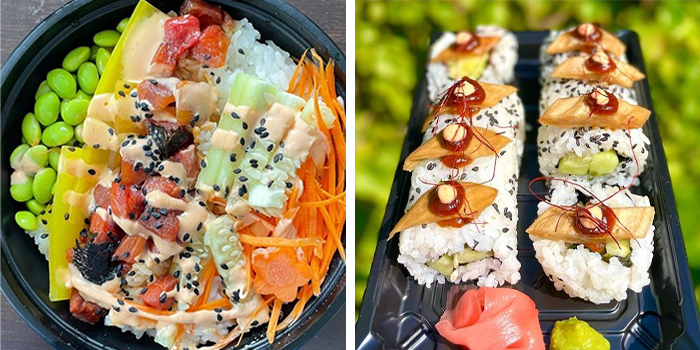
The details of how Liberation Kitchen partners with these brands will “probably evolve over time,” as Sopko put it, and the company is not operating or taking any ownership stake or profit-sharing in the brands it works with.
For now, the arrangement is that brands get access to kitchen and storage space, seven-days-a-week access to the retail setting along with mentorship and help with marketing and PR.
A spokesperson for the company called it “a way for the Upton’s Naturals’ team to share foods they love, test new products that will launch in retail, and have their feet on the ground connecting with their community and hearing their thoughts firsthand.”
Sopko has found in her work at both Upton’s and the Plant Based Foods Association that the biggest barrier is knowledge. Upton’s team can help guide emerging vegan companies through the complicated process of developing a distribution network or how retail placement works.
“It can be quite challenging to learn all of that on a budget,” she said, “because if you are not yet in a position where you can hire the kind of expertise that exists in the industry, you are essentially left to figure it out yourself.”
In this pilot period, Liberation Kitchen is helping Snackie Chan’s founder iron out the more complicated aspects of launching a foodservice business, like filling out insurance paperwork or doing financial reporting. As the launchpad works with more CPG startups though, the relationship could change to helping a brand with distribution or ingredient sourcing for a wholesale model, for example.
At this point, Sopko doesn’t know how many brands the launchpad can maintain but there have been several that have applied since the project began in August and Liberation Kitchen is developing a more formal application process for future partnerships.
The point of the project is to leverage Upton’s expertise and offer food startups an opportunity to grow in an organic way.
“My goal really is not to say you should or shouldn’t take investment money or how anyone should run their brand but just that there are options,” Sopko said. “There are multiple different ways of growing and financing your company. And there are multiple different versions of what success can look like for a food company.”




